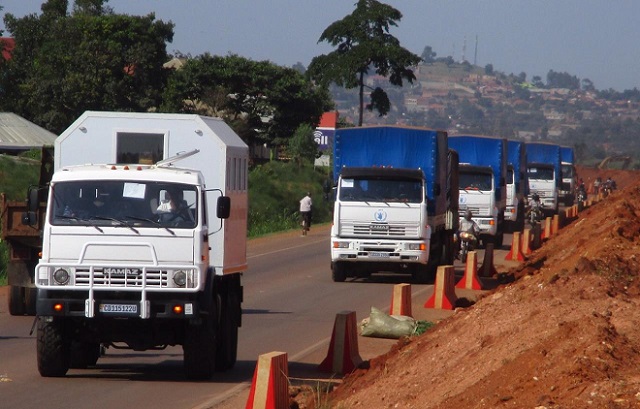
The US Mission to Uganda has announced a donation of $3 million to the United Nations World Food Program (WFP) in support of refugees in Uganda.
The large and sudden influx of South Sudanese refugees—totaling more than 82,000 since July 1, 2016—has strained WFP’s existing resources. Uganda currently hosts more than 620,000 refugees, mostly from South Sudan, the Democratic Republic of Congo, and Burundi.
According to a statement from the US Mission in Uganda, the contribution comes at a critical time and will ensure that new arrivals receive much needed food and lifesaving assistance.
Roughly two-thirds of the refugees in Uganda depend on contributions from the United States through WFP to meet their basic food needs. The large number of new arrivals that continue to flow into Uganda has stretched the humanitarian response capacity and put great pressure on the reception centers and existing refugee settlements.
U.S. Ambassador Deborah Malac said, “The needs of the refugees in Uganda are extraordinary
right now. I am proud that the U.S. government can provide support to help alleviate their
suffering.”
This contribution to WFP will procure commodities that directly benefit local Ugandan farmers. The U.S. Agency for International Development (USAID), through the Office of Food for Peace (FFP), provided the funding to WFP on behalf of the American people.
Due to recent food aid reforms, Food for Peace is able to purchase commodities on the local market, helping both people in need as well as local businesses. The contribution is in line with the U. S. government’s food security initiative, Feed the Future, which aims to reduce hunger, poverty, and under nutrition in sustainable ways, and to ensure that all people at all times have access to sufficient food for healthy, productive lives.
This contribution brings USAID’s total support to WFP to an estimated $27.8 million in 2016.
This funding helps to assist refugees in Uganda as well as extremely vulnerable populations in
Karamoja.
“I commend the excellent work of the humanitarian organizations responding to this intense
emergency and applaud this dedication to meeting the needs of all refugees in Uganda,” said Mission Director Mark Meassick.
“This response has been possible due to the progressive refugee policies of the Government of Uganda and the great work of the Office of the Prime Minister that has processed these refugees and allocated them land.”
Elsewhere, another close to 243,000 South Sudanese refugees have arrived in Sudan, including tens of thousands in war-torn Darfur, since a civil war erupted in their country in December 2013, the UN said .
South Sudan won independence from Sudan in 2011 but two years later it fell into a brutal civil war that has killed tens of thousands of civilians.
Fleeing conflict and food shortages in their country, tens of thousands of South Sudanese have also sought refuge in other neighbouring countries.
Hundreds of people were killed in Juba last month when fierce fighting erupted between supporters of former rebel leader Riek Machar and government troops.
South Sudan is one of the poorest countries on the planet, and it had some of the world’s worst indicators for development, health and education even before the war erupted.
The war broke out in December 2013 when President Salva Kiir accused Machar of plotting a coup and sacked him as vice president.
Machar’s sacking set off a cycle of retaliatory killings that split the poverty-stricken, landlocked country along ethnic lines.
The violence has driven more than two million people from their homes.
Machar is currently undergoing “medical treatment” in Khartoum, a Sudanese government statement said on Tuesday.
 The Independent Uganda: You get the Truth we Pay the Price
The Independent Uganda: You get the Truth we Pay the Price



